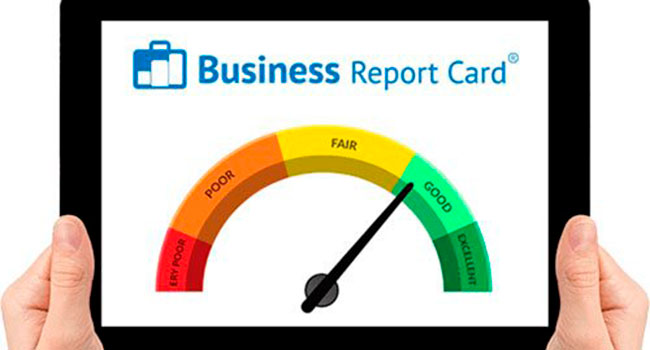 I enjoy reading my kids’ report cards and making them sweat like I did when my mom and dad went through my report card.
I enjoy reading my kids’ report cards and making them sweat like I did when my mom and dad went through my report card.
The truth is, their report cards are, for the most part, better than mine. The comments from the teachers are certainly much nicer.
But why tell my kids that?
If you’re in business, you need a report card. Many business owners I know look at the only report that means anything to them: their bank statements. And often, they don’t even look at the statement – they just check their bank balance when making a deposit.
Many small business owners base their important decisions on what’s in the bank on any given day. This is a problem.
Cassandra contacted me a while ago. She and her husband were the proprietors of a hardware business, but their interests lay elsewhere. They turned the business over to her brother-in-law to run. After two years, the brother-in-law decided he didn’t want to manage the business and quit.
This left Cassandra in a pickle. She and her husband and their kids had relocated 1,100 km away. Returning to the business, she realized that the accounts were a mess. Taxes hadn’t been filed, year-ends hadn’t been completed and the bank account was running on empty.
Sales were falling and, as a result, Cassandra and her husband could no longer maintain their lifestyle. They had never needed to look at financial statements before. They thought everything was fine but had inadvertently been draining the bank account. They were in deep trouble!
The report cards you need to look at on a regular basis are your income statement and balance sheet. You should be getting these two documents from your bookkeeper every month.
What do you need to look at on your income statement?
Sales income/revenue: Are sales increasing or decreasing? By what percentage? Do you have certain departments that are growing or declining compared to the previous period? Why is that happening? What are the trends in the business? Are you doing anything differently that’s helping or hurting sales?
The more you can figure this out, the better chance you have of being successful.
Cost of goods sold: Look at each line on your income statement. What’s changed from the previous period? Can you explain the changes? Is there any input cost you can reduce?
Gross profit: Look at the gross profit percentage compared to the previous period. Has it gone up or down? If it’s gone down, you may need to make changes to ensure this doesn’t continue. What needs to be done? If it’s going up, good for you. Consider what you’ve done to make this happen. Can you continue to do this?
General and administrative expenses: Carefully compare this area – line by line – to the previous period. Have any expenses gone up? Why? What needs to change? Are there areas where you can eliminate costs? Remember that every unnecessary cost you can reduce goes directly into your pocket as an owner.
Profit: Compare your profit in this period to the previous period. Are you going in the right direction? Have you hit your profit goal? Are you happy with this number or discouraged? What needs to happen for you to reach your goals? Remember, you own the business to make a profit. This area is especially important.
Your balance sheet: This is pretty simple. When you’re looking at your balance sheet, you need to know how much money you have in the bank. Your accounts payable – how much you owe others. Accounts receivable – how much people owe you. You might want to look at your long- and short-term debt to see how much money you owe on loans (although perhaps you might want to block that out of your mind).
Like Cassandra, you’re asking for trouble if you don’t know where you’re coming from, where you’re going or how well your business is doing.
This is like driving a car without a gas gauge. Or like a sports team not finding out until the end of the season if they’ve won or lost games during the season. You wouldn’t play sports or games without keeping score. Why play roulette with your business by not keeping score?
Make it a point to keep track. Get those monthly report cards from your bookkeeper or accountant!
Dave Fuller, MBA, is an award winning business coach and a partner in the firm Pivotleader Inc.
For interview requests, click here. You must be a Troy Media Marketplace media subscriber to access our Sourcebook.
The views, opinions and positions expressed by columnists and contributors are the author’s alone. They do not inherently or expressly reflect the views, opinions and/or positions of our publication.


